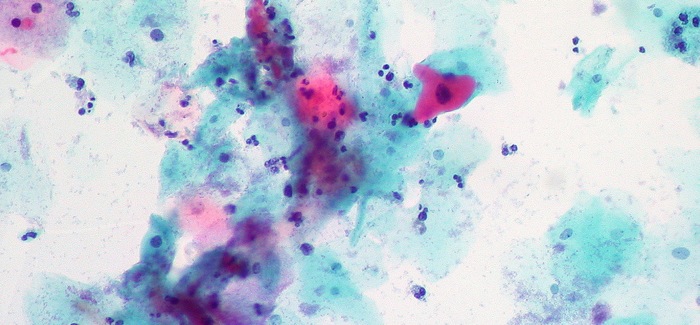
ASHLEY GABOURY
CUP Central Bureau Chief
WINNIPEG (CUP) — Health Canada has approved the use of the HPV vaccine Gardasil for men.
Pharmaceutical company Merck Frosst was granted authorization by the federal government on Feb. 22 to market Gardasil for boys and men from ages 9 to 26.
Dr. Bob Lotocki, program director of the Manitoba Cervical Cancer Screening Program, said that vaccinated males could decrease the overall prevalence of the human papillomavirus in the community.
“If they are having sex with more than one individual, theoretically, it will decrease the prevalence of HPV spread in the population as well, so it will help women indirectly,” said Lotocki.
Dr. Andrew Potter, director of the University of Saskatchewan’s Vaccine and Infectious Disease Organization, said the use of Gardasil in men isn’t new.
“Canada essentially is following what other countries are doing around the world. It’s not something (for which) we’ve jumped out on a limb and said, ”˜Let’s give it a shot.’ It’s something that’s happening all over the world.”
HPV encompasses a number of different viruses under one family that can cause a variety of inflictions from warts to cancer, including cervical and vulva cancers in women.
Lotocki said the fact that women have the ability to vaccinate themselves against HPV is “fantastic.” Health Canada approved the use of Gardasil in women ages nine to 26 in 2006.
“(The) long answer is that I think there are still some unanswered questions. I think that one of marketing directions that Gardasil has taken, at least (that) Merck has taken with their vaccine… is to prevent cervical cancer, but in reality it has the (ability) not only to prevent cervical cancer but a lot of precancerous lesions.”
Lotocki said that the vaccine protects women against the two genotypes of HPV that are associated with seven per cent of cervical cancers, and potentially up to 50 per cent or more of precancerous lesions.
He also said the vaccine would provide personal protection for men, with the potential to prevent not only warts but also certain types of cancers.
“What you’re looking at is preventing anal carcinomas. Theoretically, men who have sex with men are at risk of developing anal cancers that theoretically (this vaccine) prevents, (as well as) head and neck cancer.”
Potter said that men should be vaccinated not just to protect themselves, but to stop the spread of the virus.
“What happens is that if you only vaccinate women, you still have the virus out there. If you vaccinate men and women, you are not going to get transmission from infected men back into women. Essentially, the risk goes down accordingly,” he said.
Lotocki said the prevalence of HPV among youths is quite high.
“Theoretically, if you look at some population studies… it may be up to 25 per cent,” for the 20 to 30 age group, he said.
Lotocki said that all age groups are at risk for contracting HPV, with 75 per cent of the population being exposed to it at some point during their life.
He said that due to its prevalence, he would reclassify HPV not as a sexually transmitted infection but as a “very common viral infection with a low consequence of developing disease, such as precancerous changes or cancers.”
“The problem is we looked at it as a very uncommon infection, but we know that that’s not true now. It’s a very common infection. That’s why I think we should not use that stigma. We have to try and normalize it. Not normalize it in terms of saying it’s a normal thing, but normalize it in saying that it’s a very common thing.”
Lotocki recommended that women should still have regular Pap tests, as the vaccine is not fully protective.
“You need to be diligent in terms of your own health. The thing is when we’re busy, especially when you’re in university, you tend to think about your academics rather than think about your personal health, but you’ve got to take both hand in hand,” said Lotocki.
“If you look at it, you buy yourself something nice to make you comfortable today, so you may go and… buy yourself a pair of jeans, being male or female. The vaccine is expensive enough that potentially you could spoil yourself long term by protecting yourself clinically.”
– –
Leave a Reply